Interpretations
The fact that both the National Curriculum in England and the national assessment objectives that frame public examinations at GCSE and A-level include a focus on ‘historical interpretations’ (plural) as well as referring separately to students’ own use of evidence – makes it very clear that there is an important distinction between the disciplinary concepts of ‘evidence’ and ‘interpretations’. While the former is concerned with students’ use of sources to develop their own interpretation of events; the latter is concerned with students’ exploration and explanation of how and why interpretations developed by historians differ from one another. (Both have a critical role to plan in students’ historical learning – and both need to be carefully planned!) Giving students the confidence and the knowledge to handle competing interpretations is undoubtedly challenging, but the materials in this section show how careful planning within and across the key stages (including Key Stage 3) can help students of all ages to engage effectively with interpretations examining the relationship between historians’ accounts (in books and on television) and the particular questions that they have chosen to answer, as well as the sources on which they claim to have drawn. Read more
-
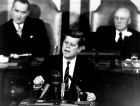
'But why then?' Chronological context and historical interpretations
ArticleClick to view -

'Who, after all, speaks today of the annihilation of the Armenians?'
ArticleClick to view -
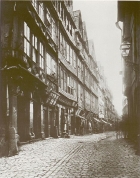
A question of attribution: working with ghetto photographs
ArticleClick to view -

Absence and myopia in A-level coursework
ArticleClick to view -

Approaches to planning interpretations-focused enquiries.
ArticleClick to view -
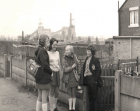
Beyond the bolt-on: placing local history at the heart of a diverse and decolonial curriculum
ArticleClick to view -

Bringing historical method into the classroom
ArticleClick to view -

Building Key Stage 5 students’ analysis of interpretations
ArticleClick to view -

Creating confident historical readers at A-level
ArticleClick to view -

Cunning Plan 142: Why do historical interpretations change over time?
ArticleClick to view -

Cunning Plan 151: When and for whom has 1688 been 'Glorious'?
ArticleClick to view -

Cunning Plan 161: Magna Carta's legacy
ArticleClick to view -

Cunning Plan 165: Helping lower-attaining students
ArticleClick to view -
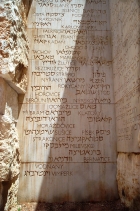
Deepening post-16 students' historical engagement with the Holocaust
ArticleClick to view -

Developing sixth-form students' thinking about historical interpretation
ArticleClick to view -
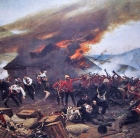
Do we need another hero? Rorke's Drift
ArticleClick to view -

Emotional response or objective enquiry? Using shared stories and a sense of place
ArticleClick to view -

Emotional response or objective enquiry? Using shared stories and a sense of place in the study of interpretations for GCSE
ArticleClick to view -

Exploring the challenges involved in reading and writing historical narrative
ArticleClick to view -

Exploring the relationship between historical significance and historical interpretation
ArticleClick to view

